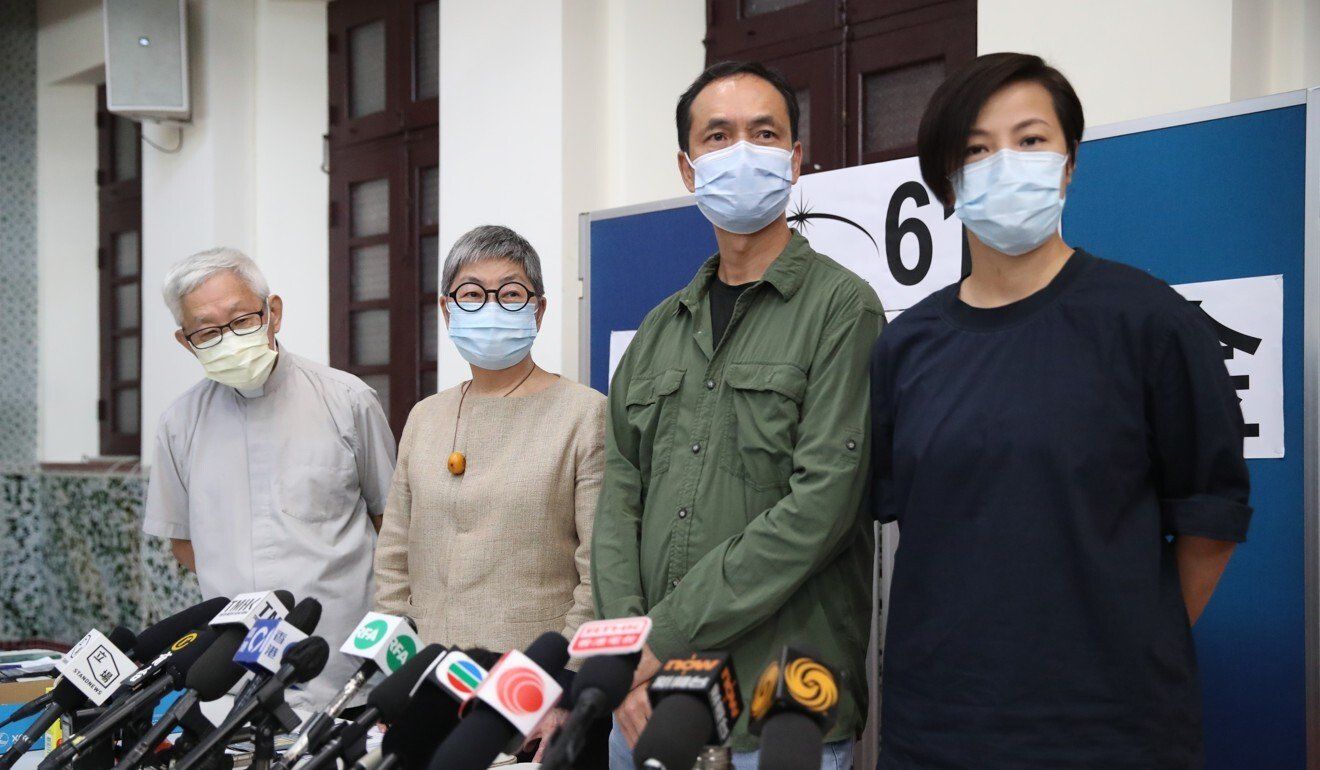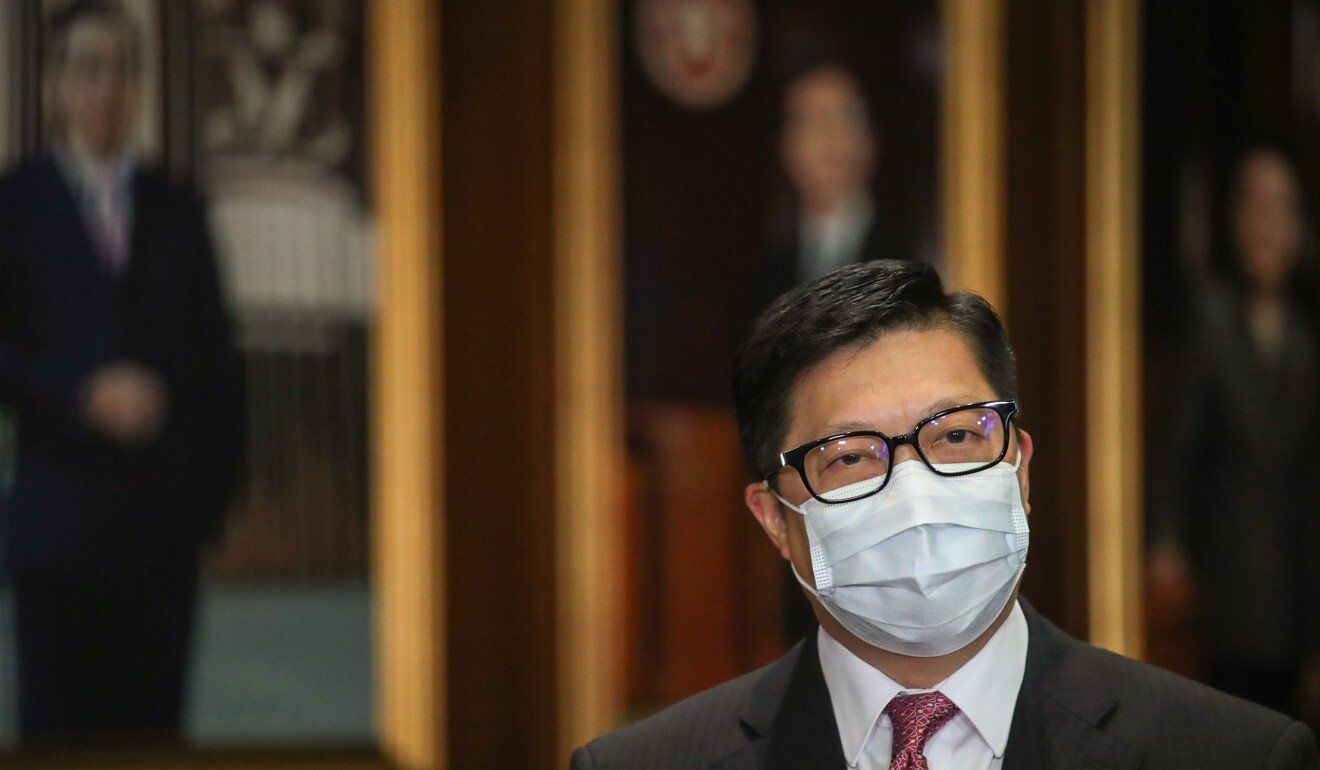Officers from National Security Department target 612 Humanitarian Relief Fund, which paid out HK$243 million to support anti-government protesters facing legal and economic issues.
Hong Kong national security police are investigating whether a fund supporting the city’s anti-government movement was involved in collusion with foreign forces, according to sources.
The 612 Humanitarian Relief Fund, and the Alliance for True Democracy, which provided its bank account to the fund’s trustees for holding donations, have been targeted by officers of the National Security Department, one source said on Wednesday.
They said police had obtained court orders under the national security law to require the two groups to provide information within a specified period of time.
“The source of the donations, the information of the donors and the purpose of the donations were among the details officers demanded to investigate whether there was collusion with foreign forces,” the source said.
 Cardinal Joseph Zen Ze-kiun (far left), Margaret Ng Ngoi-yee, Hui
Po-keung, and Denise Ho Wan-sze announce the decision to cease
operations of the 612 Humanitarian Relief Fund.
Cardinal Joseph Zen Ze-kiun (far left), Margaret Ng Ngoi-yee, Hui
Po-keung, and Denise Ho Wan-sze announce the decision to cease
operations of the 612 Humanitarian Relief Fund.
Court orders had been addressed to the fund’s trustees, directors and people in charge of the alliance, the source added.
“The court orders have been delivered to more than 10 people involved,” another source said.
In a statement issued on Wednesday evening, the force confirmed it had launched an investigation into whether the fund had breached the national security law or any other local ordinances.
It also confirmed officers had obtained orders from the High Court to compel the relevant people to provide information relating to the investigation.
According to the Beijing-imposed law, national security police are allowed to require those who are suspected, on reasonable grounds, of possessing information or material relevant to investigations to answer questions and furnish such information or produce such materials while handling cases concerning offences endangering national security.
About two weeks ago, the fund’s trustees said it would close in October after distributing more than HK$243 million to protesters facing criminal prosecution or financial hardship as a result of the 2019 unrest.
They said winding down the fund was unavoidable once they had been notified of a separate decision to fold the alliance.
On August 18, Secretary for Security Chris Tang Ping-keung declined to comment on whether police were investigating the fund, but warned that “any groups or organisations which have broken the law … even if they announce they are disbanding, their criminal behaviour cannot be written off and we will do our best to investigate them”.
The planned dissolution of both the alliance and the fund follows similar action taken last month by the Professional Teachers’ Union, and the Civil Human Rights Front, an umbrella group behind the city’s largest marches during the social unrest.
The alliance was formed in 2013 by about 10 opposition groups, including the Democratic, Civic and Labour parties, to campaign for a popular vote in the city’s leadership race in 2017.
 Secretary for Security Chris Tang.
Secretary for Security Chris Tang.
The court orders came a week after police delivered letters to 12 members of the Hong Kong Alliance in Support of Patriotic Democratic Movements of China – which has already decided to disband – demanding information about its membership and activities.
National security officers are looking for links between this group and several different foreign organisations, including some based in the United States.
Since the national security law went into effect on June 30 last year, 143 people aged 15 to 79 have been arrested, including media tycoon Jimmy Lai Chee-ying and opposition lawmakers. So far, 81 have been prosecuted, one has been convicted at trial and two others have pleaded guilty.















